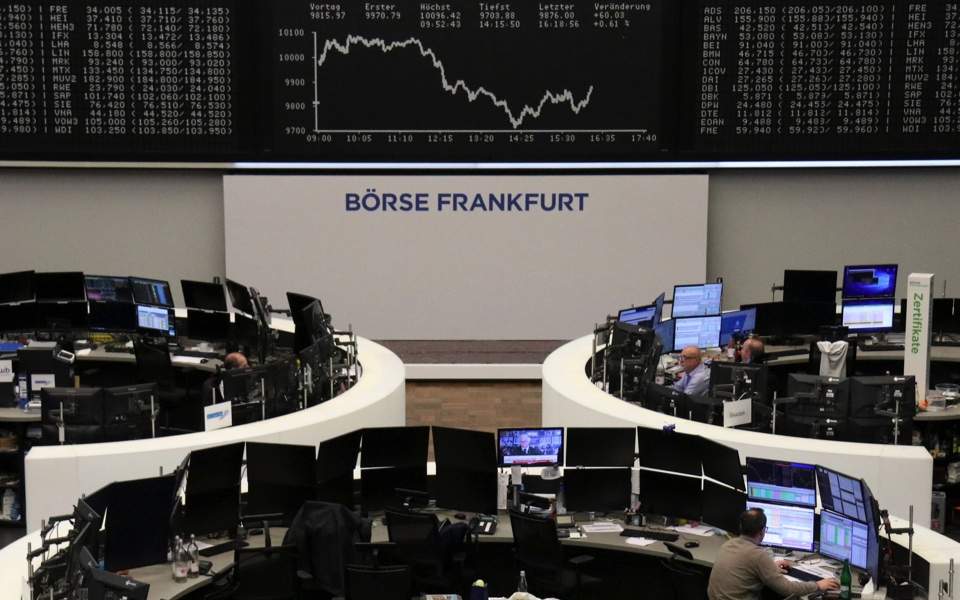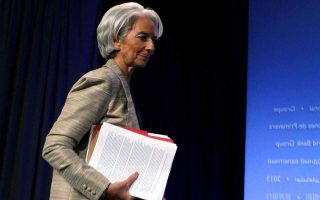Global financial system in rough seas

Policy makers across the world are moving quickly to provide financial support to their economies, which are, in all likelihood, in deep recession. Given the unprecedented economic uncertainty associated with Covid-19, the depth and breadth of the downturn is hard to quantify. However, the global economic recession is unlikely to be short-lived. Risk aversion will likely deepen across multiple financial markets. The transmission and persistence of financial shocks will be exacerbated by the G20’s lack of policy coordination and a policy-induced recession in the United States.
When looking at the current shocks, the US dollar is front and center. Equity market declines have garnered much attention. And yet the foreign exchange market is a key global transmission mechanism. The US dollar has increased to multi-year highs. And its status as a “safe haven” asset might mean that this continues for some time. If anything, US dollar demand has ratcheted to a new level: Global investors have even swapped liquid “safe haven” assets in favor of holding cash. The deterioration in liquidity in the foreign exchange markets has strained global dollar borrowers.
Risk aversion and home bias in investing is likely to hurt cross-border investment. This has already raised borrowing costs and restricted access to finance for countries that are perceived as riskier, or are highly indebted, or both. Emerging markets have seen investment outflows of nearly $80 billion, with over 20 emerging central banks cutting interest rates to support output growth. In even more pronounced instances, India and Brazil have intervened to support their currencies. Capital flight comes at a time when (non-financial corporate) debt is nearing 200 percent of gross domestic product in emerging markets.
The US could see a policy-induced mistake exacerbate its recession. As unprecedented as they may be, the Federal Reserve’s actions for unlimited quantitative easing are not sufficient to fight a public health crisis. Therefore, the nature of the US fiscal stimulus (and particularly its financial support for households and employment) will be of paramount importance to the health of the US economy. As it stands, the $2 trillion package agreed with Congress, with detrimental bipartisan delays, is largely aimed at industry.
The pandemic-driven economic and financial disruption will most likely cause a deeper and longer-lasting economic slump than the 2008-09 recession. This is in large part due to the fact that policy makers have purposefully shut off large sections of their economies for the purpose of physical and social distancing. The disruption to trade, travel and transport of goods will have also contributed to a major slowdown in global economic activity. The dichotomy between safeguarding public health and safeguarding economic activity will have meant deterioration in the latter.
In the light of the current pervasive uncertainty, the need for a global policy response has never been stronger. And yet, the absence of a coordinated central bank response thus far has been deafening. All eyes will be on the upcoming G20 virtual summit. Among its series of recommendations, the World Bank has urged G20 creditors to offer debt relief to the world’s poorest countries – many of which are in debt distress. Additionally, at the global financial level, there have been proposals that the G20 should agree to increase their pledges to the New Arrangements to Borrow (NAB), designed to provide a financial backup to the International Monetary Fund. The NAB could be increased to boost the IMF’s potential lending capacity (the latter is at roughly $1 trillion). This could mitigate the two first shocks of the US dollar strength and the sudden capital stops in emerging economies.
The third shock, a US policy-induced recession, is more troubling. As the late Hyman Minsky’s work reminds us, we need to continuously build a policy structure that is based on an evolving understanding of how the global economy generates financial fragility. Members of the G7 or perhaps the G20 must pick up the slack where the US is failing. Although everyone has paid lip service to better governance as an effective means to protect against shocks, the post-Bretton Woods system of global governance is not yet robust enough. What is more, with trust slowly unraveling between the US and its counterparts, China could very well fill the vacuum with new types of institutional collaboration, information exchange and liquidity arrangements. A disappointing global response to the current crisis would be unfathomable.
Phyllis Papadavid is a research associate at the Hellenic Foundation for European and Foreign Policy (ELIAMEP). She has two decades of experience as an international economist and senior financial strategist in investment banking and has advised governments, central banks and major financial institutions globally.





